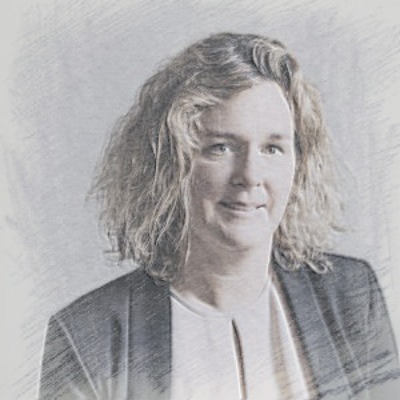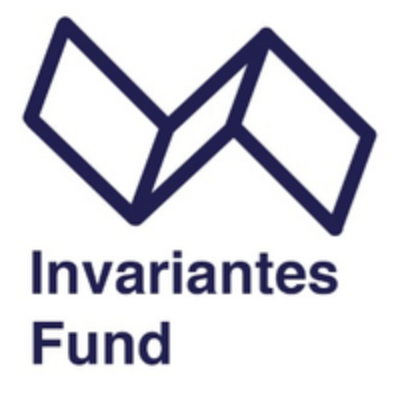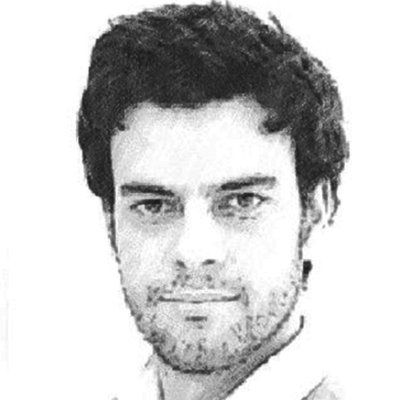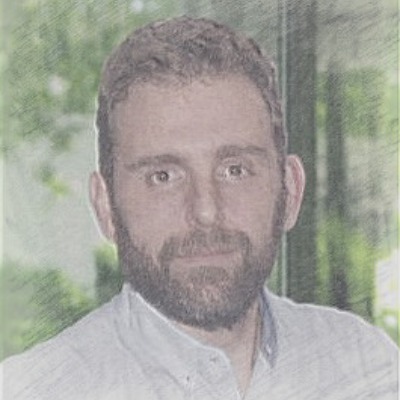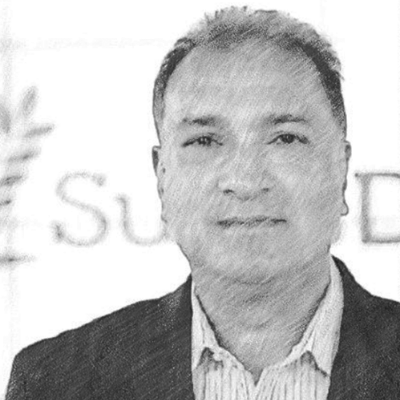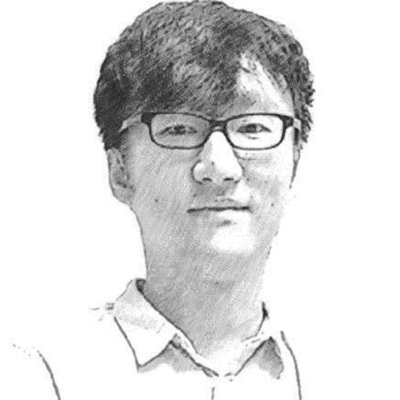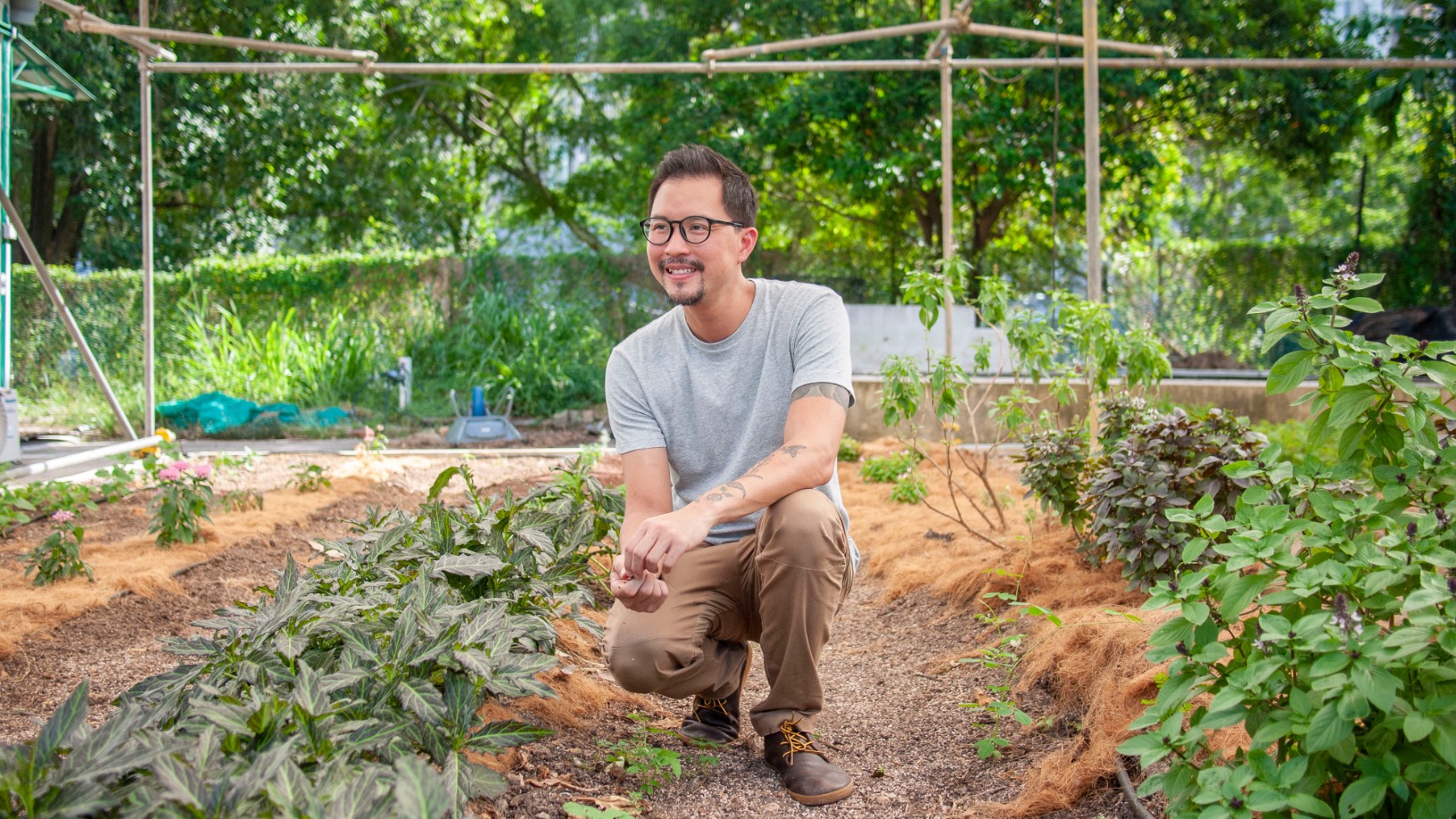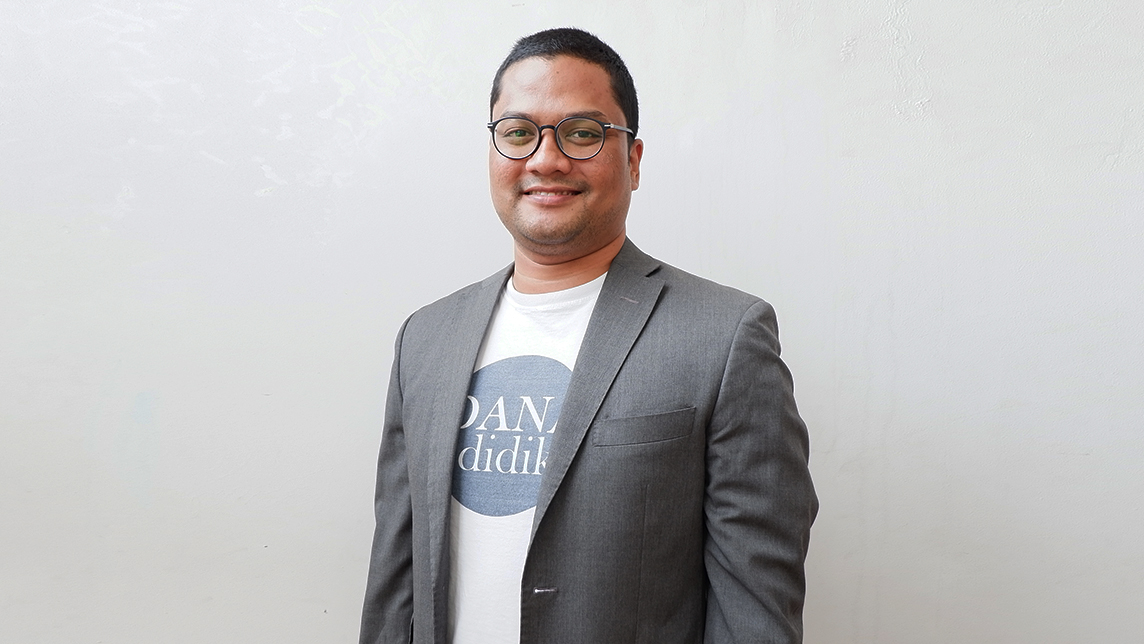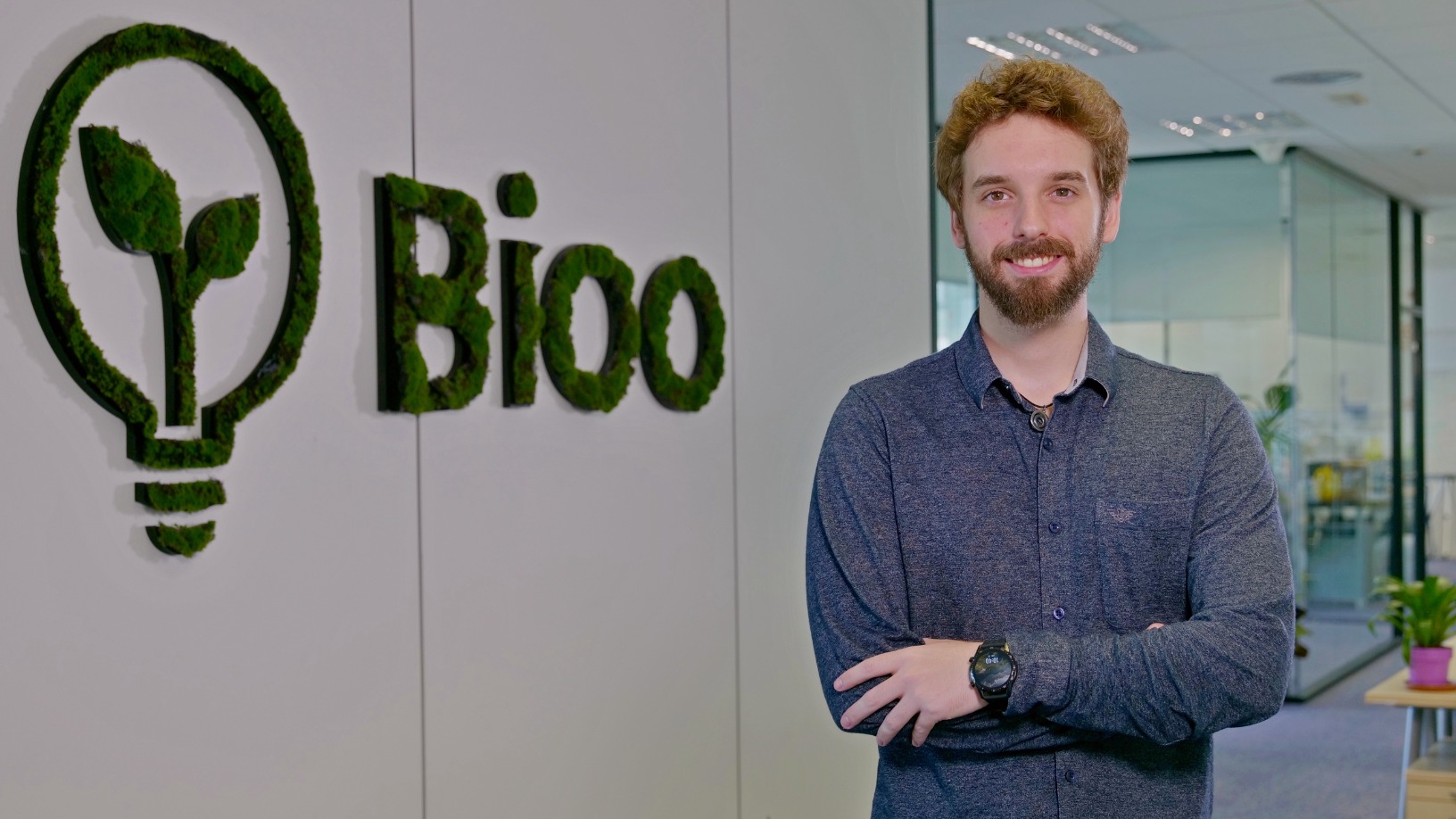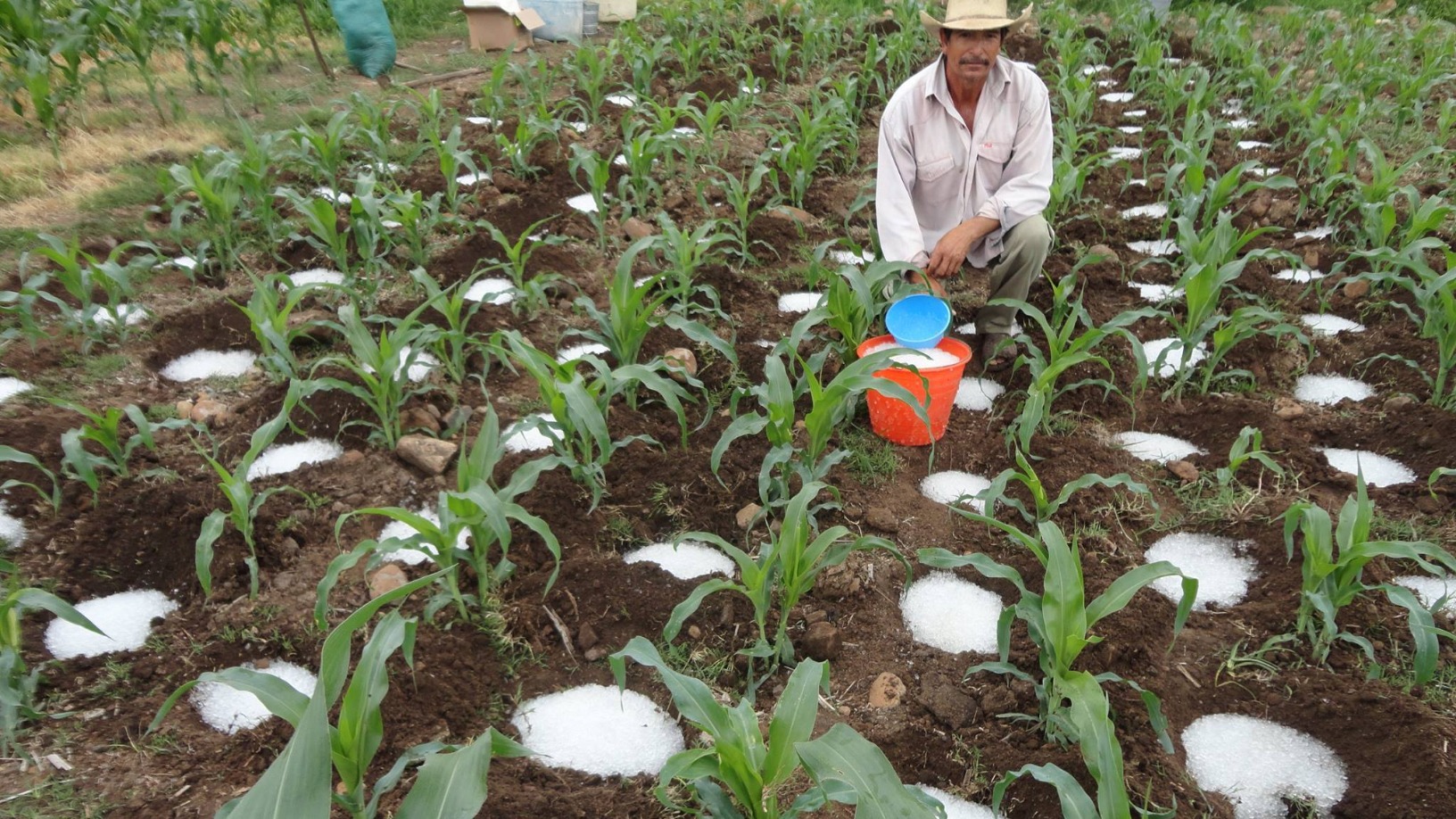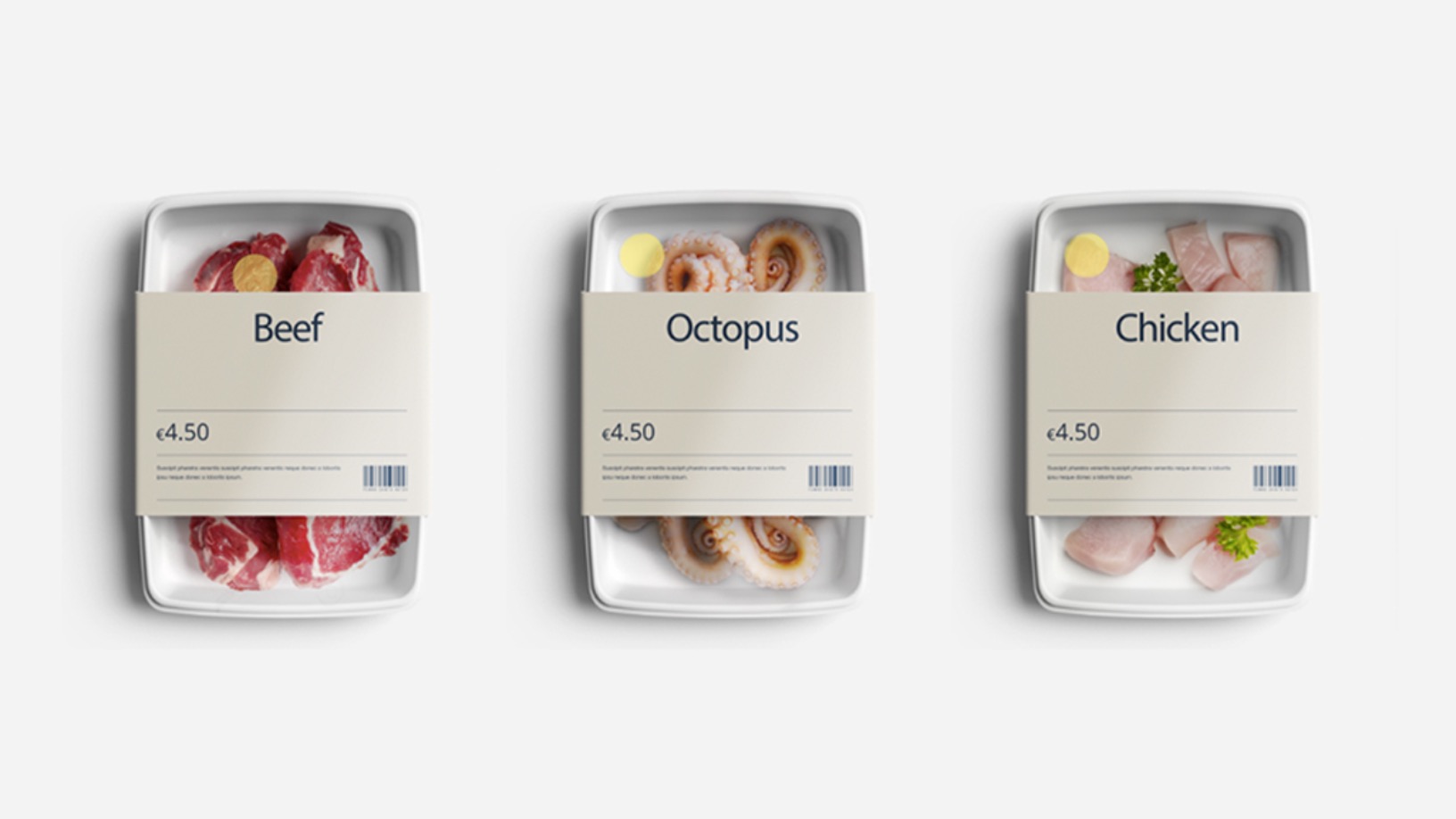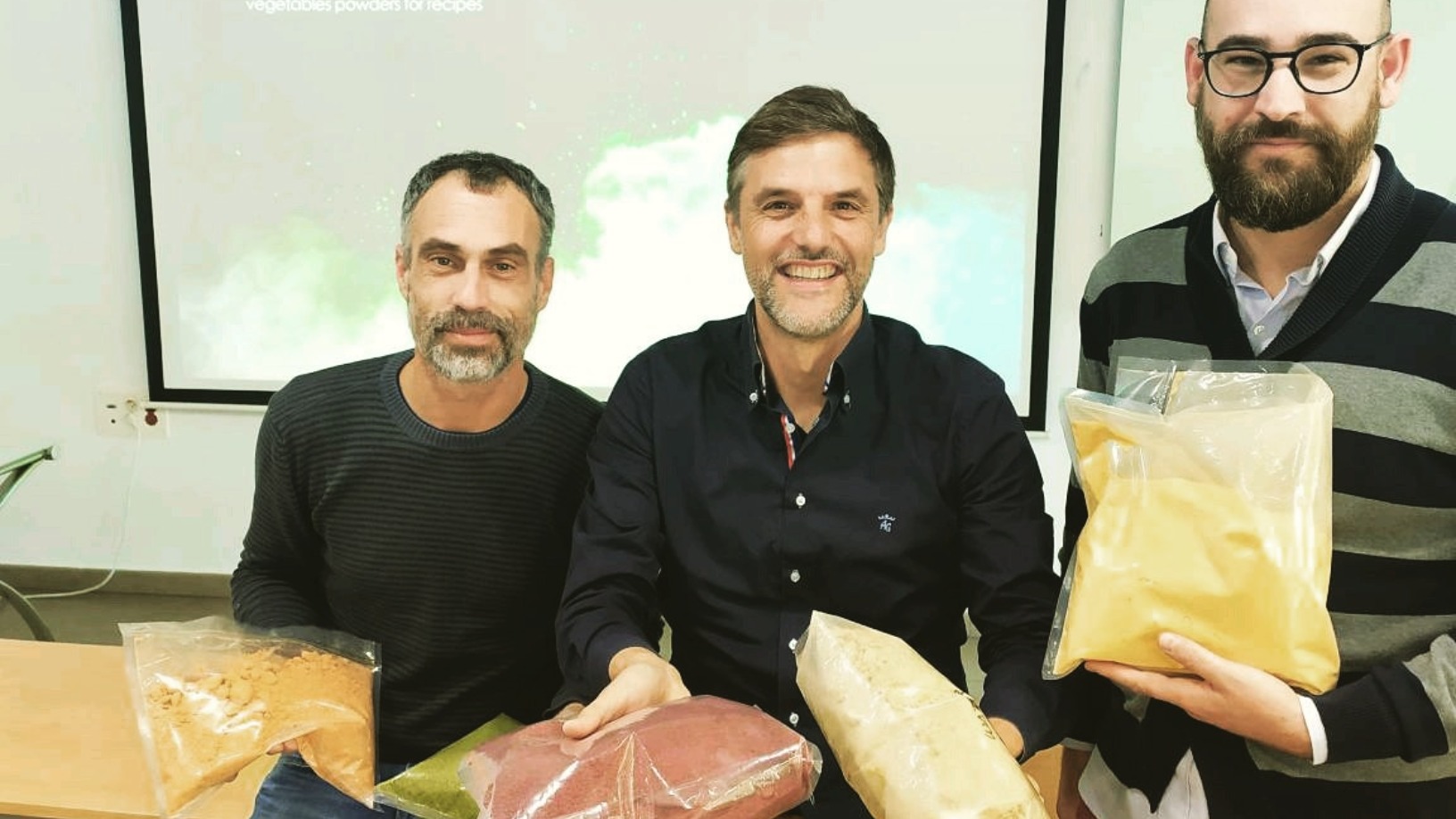Edible Garden City
-
DATABASE (74)
-
ARTICLES (198)
Laura González- Estéfani is best known as the co-founder of Venture City. Established in 2017, the tech accelerator has offices in Miami in the US and Madrid in Spain. The director of one of Spain’s largest banks CaixaBank is also a board member of the European Commission’s Innovation Council. She has also worked for Facebook as a country manager for Spain and Portugal.González- Estéfani has also been a prolific private investor and business angel since 2016. She invests across ecosystems and market verticals, including success stories like Cabify and Spotahome. In 2020, she participated in the seed round of Spanish femtech WOOM.
Laura González- Estéfani is best known as the co-founder of Venture City. Established in 2017, the tech accelerator has offices in Miami in the US and Madrid in Spain. The director of one of Spain’s largest banks CaixaBank is also a board member of the European Commission’s Innovation Council. She has also worked for Facebook as a country manager for Spain and Portugal.González- Estéfani has also been a prolific private investor and business angel since 2016. She invests across ecosystems and market verticals, including success stories like Cabify and Spotahome. In 2020, she participated in the seed round of Spanish femtech WOOM.
Founded in 2015 in Guatemala City, the Invariantes Fund invests in technology startups based in the US and Latin America, across different market segments. It is the only VC based in Guatamala, and bills itself as the country’s first early-stage VC firm. As of June 2021, its portfolio includes 24 startups. Invariantes’ most recent investments include participation in the $21m Series A round of US edtech player Reforge, as well in the $130m Series B round of US-based Axiom Space, which is building the first international commercial space station. Both investments were in February 2021.
Founded in 2015 in Guatemala City, the Invariantes Fund invests in technology startups based in the US and Latin America, across different market segments. It is the only VC based in Guatamala, and bills itself as the country’s first early-stage VC firm. As of June 2021, its portfolio includes 24 startups. Invariantes’ most recent investments include participation in the $21m Series A round of US edtech player Reforge, as well in the $130m Series B round of US-based Axiom Space, which is building the first international commercial space station. Both investments were in February 2021.
Founded in 1976, KKR is an American private equity firm headquartered in New York City, USA. The company currently oversees investment opportunities in various industries in America, Europe and Asia, ranging from venture capital to hedge funds. As of March 2021, it has $367bn assets under management, with more than 100 companies in their investment portfolio.Its investment portfolio in Asia-Pacific includes major corporations like Panasonic, COFCO Meat and GenesisCare, as well as startups like Gojek. Elsewhere, it has invested in companies like ride-hailing startup Lyft (which has gone for an IPO), historic guitar maker Gibson, and combat sport broadcasting company UFC (Ultimate Fighting Championship).
Founded in 1976, KKR is an American private equity firm headquartered in New York City, USA. The company currently oversees investment opportunities in various industries in America, Europe and Asia, ranging from venture capital to hedge funds. As of March 2021, it has $367bn assets under management, with more than 100 companies in their investment portfolio.Its investment portfolio in Asia-Pacific includes major corporations like Panasonic, COFCO Meat and GenesisCare, as well as startups like Gojek. Elsewhere, it has invested in companies like ride-hailing startup Lyft (which has gone for an IPO), historic guitar maker Gibson, and combat sport broadcasting company UFC (Ultimate Fighting Championship).
Danish asset management company Maj Invest was established in 2005. Based in Copenhagen, it is owned by the management, employees and Danish institutional investors, PKA, Realdania and PBU. Its main businesses are in asset management and private equity. It recently ventured into the financial services sector with Maj Bank.In 2009, Maj Invest launched into international private equity activities, with offices in Singapore, Indonesia’s Jakarta,Vietnam’s Ho Chi Minh City and Lima in Peru. Its Maj Invest Equity Southeast Asia II K/S, worth US$90 million, is still looking for new investment opportunities in the region.
Danish asset management company Maj Invest was established in 2005. Based in Copenhagen, it is owned by the management, employees and Danish institutional investors, PKA, Realdania and PBU. Its main businesses are in asset management and private equity. It recently ventured into the financial services sector with Maj Bank.In 2009, Maj Invest launched into international private equity activities, with offices in Singapore, Indonesia’s Jakarta,Vietnam’s Ho Chi Minh City and Lima in Peru. Its Maj Invest Equity Southeast Asia II K/S, worth US$90 million, is still looking for new investment opportunities in the region.
Co-founder of Squirrel AI
Squirrel AI co-founder Jeff Wang Feng started as an academic. He received his PhD in instructional technology from the University of Georgia in 2006. He then conducted postdoctoral research at the University of Pennsylvania from 2006–2007 and the University of Virginia from 2007–2008.Wang was Director of Distance Education at Mount Saint Mary College in New York state from 2008–2011. From 2011–2014, he was Director of John Jay Online, in the John Jay College of Criminal Justice, part of the City University of New York, In 2015, Wang returned to China and joined Squirrel AI as a co-founder. In 2016, he left Squirrel AI and founded his own adaptive learning startup, Learnta Inc, of which he is CEO.
Squirrel AI co-founder Jeff Wang Feng started as an academic. He received his PhD in instructional technology from the University of Georgia in 2006. He then conducted postdoctoral research at the University of Pennsylvania from 2006–2007 and the University of Virginia from 2007–2008.Wang was Director of Distance Education at Mount Saint Mary College in New York state from 2008–2011. From 2011–2014, he was Director of John Jay Online, in the John Jay College of Criminal Justice, part of the City University of New York, In 2015, Wang returned to China and joined Squirrel AI as a co-founder. In 2016, he left Squirrel AI and founded his own adaptive learning startup, Learnta Inc, of which he is CEO.
According to INADEM, Mexico's organization of entrepreneurs, DILA Capital is estimated to hold the largest and most valuable VC deal flows in Mexico. Headquartered in Mexico City and founded in 2004, the firm is dedicated to seed and early-stage investments in Latin American markets. Its latest and third fund saw 800 million pesos (US$41.7 million) invested in regional startups.Banking on a diverse and vast network of partners who are mentors and serial startup entrepreneurs, DILA also supports foreign companies in penetrating and establishing their position in the Mexican market. It has managed one exit to date: Petsy, a pet marketplace.
According to INADEM, Mexico's organization of entrepreneurs, DILA Capital is estimated to hold the largest and most valuable VC deal flows in Mexico. Headquartered in Mexico City and founded in 2004, the firm is dedicated to seed and early-stage investments in Latin American markets. Its latest and third fund saw 800 million pesos (US$41.7 million) invested in regional startups.Banking on a diverse and vast network of partners who are mentors and serial startup entrepreneurs, DILA also supports foreign companies in penetrating and establishing their position in the Mexican market. It has managed one exit to date: Petsy, a pet marketplace.
Co-CEO and Co-founder of Notpla (formerly Skipping Rocks Lab)
Rodrigo García González graduated in Architecture at the Technical University of Madrid (ETSAM) in 2009 and also completed various PhD courses in advanced architecture at his alma mater.In 2006, the architect student joined an EU Asia-Link sustainable humane habitat program that included stints at the Centre for Environmental Planning and Technology (CEPT) University in India. He also won a SMILE scholarship to study industrial design at Pontificia Universidad Católica in Chile for one year. In 2011, he obtained a scholarship to study industrial design and business at Umeå Institute of Design in Sweden. In 2014, he completed two master’s programs in innovation design engineering run by London’s Imperial College and Royal College of Art.In July 2014, he co-founded Skipping Rocks Lab, that was later pivoted into Notpla, a UK-based startup that develops compostable and edible packaging materials made of seaweed and other plants.Since 2007, he has worked with various institutions in Europe, Latin America and the US including Cornell University, CEPT, Imperial College and Royal College of Art. In 2016, he became a senior lecturer for a degree program in product and furniture design at Kingston University.He has two patents for his work on structural and deployable systems. His designs have also been featured in prestigious art centers like the Cite de l'Architecture of Paris and the Venice Biennale of Architecture.Other projects include the Hop! suitcase that can follow the user by tracking the signal of the user’s mobile phone and Aer, an artificial cloud that can evaporate “drinkable” water from the sea. He also developed Zipizip, an architectural system that enables the construction of several floors of a building in a few hours.
Rodrigo García González graduated in Architecture at the Technical University of Madrid (ETSAM) in 2009 and also completed various PhD courses in advanced architecture at his alma mater.In 2006, the architect student joined an EU Asia-Link sustainable humane habitat program that included stints at the Centre for Environmental Planning and Technology (CEPT) University in India. He also won a SMILE scholarship to study industrial design at Pontificia Universidad Católica in Chile for one year. In 2011, he obtained a scholarship to study industrial design and business at Umeå Institute of Design in Sweden. In 2014, he completed two master’s programs in innovation design engineering run by London’s Imperial College and Royal College of Art.In July 2014, he co-founded Skipping Rocks Lab, that was later pivoted into Notpla, a UK-based startup that develops compostable and edible packaging materials made of seaweed and other plants.Since 2007, he has worked with various institutions in Europe, Latin America and the US including Cornell University, CEPT, Imperial College and Royal College of Art. In 2016, he became a senior lecturer for a degree program in product and furniture design at Kingston University.He has two patents for his work on structural and deployable systems. His designs have also been featured in prestigious art centers like the Cite de l'Architecture of Paris and the Venice Biennale of Architecture.Other projects include the Hop! suitcase that can follow the user by tracking the signal of the user’s mobile phone and Aer, an artificial cloud that can evaporate “drinkable” water from the sea. He also developed Zipizip, an architectural system that enables the construction of several floors of a building in a few hours.
Co-founder, CEO of Sea Water Analytics
Javier Colmenarejo is the Spanish co-founder and CEO of Sea Water Analytics, a tourism-focused data aggregator with user app to measure seawater quality. The technology has been in development since 2017, though the company was formally launched in Madrid in April 2020. He has spent more than 15 years as a civil engineer, working in hydraulic and water treatment systems. He currently works on smart city initiatives on the Adapting Cities to Change program in Madrid and he lectures in Big Data, IoT, Data Services and Business in two Madrid institutions. He works part-time at Sea Water Analytics' technical partner Talentum as a blockchain and IoT innovation manager.Colmenarejo holds four master's degrees: in Big Data and Business Analytics from Madrid's School of Industrial Organization (EIO); in Data Science and IoT from Madrid Institute of Things Institute; in Business Administration from The Power MBA; and in civil engineering from the Polytechnic University of Madrid.
Javier Colmenarejo is the Spanish co-founder and CEO of Sea Water Analytics, a tourism-focused data aggregator with user app to measure seawater quality. The technology has been in development since 2017, though the company was formally launched in Madrid in April 2020. He has spent more than 15 years as a civil engineer, working in hydraulic and water treatment systems. He currently works on smart city initiatives on the Adapting Cities to Change program in Madrid and he lectures in Big Data, IoT, Data Services and Business in two Madrid institutions. He works part-time at Sea Water Analytics' technical partner Talentum as a blockchain and IoT innovation manager.Colmenarejo holds four master's degrees: in Big Data and Business Analytics from Madrid's School of Industrial Organization (EIO); in Data Science and IoT from Madrid Institute of Things Institute; in Business Administration from The Power MBA; and in civil engineering from the Polytechnic University of Madrid.
Co-founder, CEO of SwissDeCode
Brij Sahi is CEO and co-founder at Swiss biotech SwissDeCode, which applies DNA testing to food traceability, He has worked there full-time since April 2016. Since 2011, Sahi has also been an adjunct professor at Webster University in Geneva, teaching Business Policy, Strategic Management and Leadership. He is also a Swiss-based private investor in unnamed companies.From 2000–2008, Sahi worked at airline IT and telecommunications company SITA in both Singapore and Switzerland, where he reached the role of VP working in sales and marketing. He previously worked for two-and-a-half years in the area of sales and marketing at GAMECO, an aircraft maintenance and services company in China. Sahi started his corporate career at British Airways, where he spent over 11 years in marketing and business development. Sahi holds an MBA from Cass Business School in London and a first degree in air transport engineering from City University, London.
Brij Sahi is CEO and co-founder at Swiss biotech SwissDeCode, which applies DNA testing to food traceability, He has worked there full-time since April 2016. Since 2011, Sahi has also been an adjunct professor at Webster University in Geneva, teaching Business Policy, Strategic Management and Leadership. He is also a Swiss-based private investor in unnamed companies.From 2000–2008, Sahi worked at airline IT and telecommunications company SITA in both Singapore and Switzerland, where he reached the role of VP working in sales and marketing. He previously worked for two-and-a-half years in the area of sales and marketing at GAMECO, an aircraft maintenance and services company in China. Sahi started his corporate career at British Airways, where he spent over 11 years in marketing and business development. Sahi holds an MBA from Cass Business School in London and a first degree in air transport engineering from City University, London.
CEO and co-founder of AgroCenta (Holdings)
Francis Obirikorang completed a bachelor’s degree in materials engineering in 2006 at Kwame Nkrumah University of Science and Technology (KNUST) in Kumasi, Ghana.In 2008, Obirikorang started work as a technical writer at Esoko, a Ghanaian digital development agency in Accra, where he met web developer Michael Ocansey. Obirikorang left Esoko in 2010 and became lead technical writer for Corenett, a transactions processing management company. In 2013, he worked at digital advertising agency TXT Ghana as a business analyst until 2015.In January 2015, Obirikorang and Ocansey established their first startup Swappaholics Holdings in the British Virgin Islands. In 2016, the two friends also co-founded AgroCenta (Holdings) Limited in Mauritius with Obirikorang as CEO and Ocansey as CTO. Ocansey left the Swappaholics in 2016 to focus on building AgroCenta.Obirikorang still runs both companies as CEO and joined the global entrepreneur community Startup Grind in 2016 as chapter director of Kumasi, Ghana’s second-largest city.
Francis Obirikorang completed a bachelor’s degree in materials engineering in 2006 at Kwame Nkrumah University of Science and Technology (KNUST) in Kumasi, Ghana.In 2008, Obirikorang started work as a technical writer at Esoko, a Ghanaian digital development agency in Accra, where he met web developer Michael Ocansey. Obirikorang left Esoko in 2010 and became lead technical writer for Corenett, a transactions processing management company. In 2013, he worked at digital advertising agency TXT Ghana as a business analyst until 2015.In January 2015, Obirikorang and Ocansey established their first startup Swappaholics Holdings in the British Virgin Islands. In 2016, the two friends also co-founded AgroCenta (Holdings) Limited in Mauritius with Obirikorang as CEO and Ocansey as CTO. Ocansey left the Swappaholics in 2016 to focus on building AgroCenta.Obirikorang still runs both companies as CEO and joined the global entrepreneur community Startup Grind in 2016 as chapter director of Kumasi, Ghana’s second-largest city.
Maniv Mobility is an Israel-based venture capitalist firm, focused mainly on mobility, automotive, transportation and logistic solutions. The fund is backed by venture arms of BMW, Hyundai, LG Electronics, the Renault-Nissan-Mitsubishi Alliance, Shell and Valeo amongst others. Headquartered in Isreal, in Tel Aviv a city that is growing in the mobility space with an increasing number of automotive venture arms.Maniv Mobility operates since 2016 with an initial funding capital of $44mn and a further capital injection in 2019 of $100mn. With an international investment portfolio and global ambitions, the firm has built over the years strategic partners in Europe, North America, Israel looking for long term expansion in Asian markets.The company has been within the VCs that backed Drive.ai, the autonomous vehicle startup later acquired by Apple.
Maniv Mobility is an Israel-based venture capitalist firm, focused mainly on mobility, automotive, transportation and logistic solutions. The fund is backed by venture arms of BMW, Hyundai, LG Electronics, the Renault-Nissan-Mitsubishi Alliance, Shell and Valeo amongst others. Headquartered in Isreal, in Tel Aviv a city that is growing in the mobility space with an increasing number of automotive venture arms.Maniv Mobility operates since 2016 with an initial funding capital of $44mn and a further capital injection in 2019 of $100mn. With an international investment portfolio and global ambitions, the firm has built over the years strategic partners in Europe, North America, Israel looking for long term expansion in Asian markets.The company has been within the VCs that backed Drive.ai, the autonomous vehicle startup later acquired by Apple.
CEO and co-founder of Singrow
With a PhD in molecular biology from NUS, Bao Shengjie, CEO and co-founder of Singrow, is a plant physiology expert who has been focusing his research for more than six years on expediting growth and improving yields. He grew up in Ningbo, a coastal city of China’s eastern Zhejiang Province. In 2011, he graduated from esteemed Zhejiang University with a bachelor's degree. He also studied bioinformatics at North Carolina State University, followed by studies at NUS. Since 2017, he has been an NUS research fellow. Strawberry has his favourite fruit since childhood. After moving to Singapore, he found that strawberries from the local supermarket were nothing close to those he had been eating for years. That sparked his study into the problem of Singapore’s local strawberry market, which in turn caused him to explore the urban farming industry with his plant physiology and molecular biology knowledge. Besides founding Singrow, he is the breeder of the company’s signature White Crystal Strawberry and invented the Fast Cultivation Method.
With a PhD in molecular biology from NUS, Bao Shengjie, CEO and co-founder of Singrow, is a plant physiology expert who has been focusing his research for more than six years on expediting growth and improving yields. He grew up in Ningbo, a coastal city of China’s eastern Zhejiang Province. In 2011, he graduated from esteemed Zhejiang University with a bachelor's degree. He also studied bioinformatics at North Carolina State University, followed by studies at NUS. Since 2017, he has been an NUS research fellow. Strawberry has his favourite fruit since childhood. After moving to Singapore, he found that strawberries from the local supermarket were nothing close to those he had been eating for years. That sparked his study into the problem of Singapore’s local strawberry market, which in turn caused him to explore the urban farming industry with his plant physiology and molecular biology knowledge. Besides founding Singrow, he is the breeder of the company’s signature White Crystal Strawberry and invented the Fast Cultivation Method.
CEO, founder of TherapyChat
Alessandro De Sario is CEO and founder of mental health startup TherapyChat, Spain’s number one online psychotherapy platform founded in 2016. He also works for TherapyChat’s investor, the Spanish VC and startup developer Next Chance Group, on other startups in their portfolio, such as the discount aggregator app Billionhands.Prior to starting TherapyChat, De Sario spent just over three years working in different food delivery entities associated with German VC and startup incubator Rocket Internet. He oversaw the development and launch of Rocket Internet’s food delivery operations in Latin America before these entities were sold to JustEat and Delivery Hero. He was also Head of Logistics at La Nevera Roja in Spain, which was later acquired by Delivery Hero. Before these roles, De Sario spent two years in investment banking and mergers and acquisitions at HSBC in London.De Sario holds three master’s degrees: one in management from ESCP Business School; one in science from City University, London; and one in business administration from the University of Turin, Italy. He lectures part-time on International Food and Beverage Management at ESCP Business School in Turin, Italy.
Alessandro De Sario is CEO and founder of mental health startup TherapyChat, Spain’s number one online psychotherapy platform founded in 2016. He also works for TherapyChat’s investor, the Spanish VC and startup developer Next Chance Group, on other startups in their portfolio, such as the discount aggregator app Billionhands.Prior to starting TherapyChat, De Sario spent just over three years working in different food delivery entities associated with German VC and startup incubator Rocket Internet. He oversaw the development and launch of Rocket Internet’s food delivery operations in Latin America before these entities were sold to JustEat and Delivery Hero. He was also Head of Logistics at La Nevera Roja in Spain, which was later acquired by Delivery Hero. Before these roles, De Sario spent two years in investment banking and mergers and acquisitions at HSBC in London.De Sario holds three master’s degrees: one in management from ESCP Business School; one in science from City University, London; and one in business administration from the University of Turin, Italy. He lectures part-time on International Food and Beverage Management at ESCP Business School in Turin, Italy.
Based in New York City, Lerer Hippeau mainly invests in seed and early-stage startups based in the US. Founded in 2010 by managing partners Kenneth Lerer, Ben Lerer and Eric Hippeau, the VC operates several funds offering initial investments of $1m per startup. Kenneth Lerer is the co-founder of Huffington Post and longtime chairman of BuzzFeed. Hippeau was the CEO of Huffington Post and ex-managing partner of Softbank Capital that invested in Huffington Post.Its 400+ startups also get support for business growth by tapping into tech ecosystems like New York, San Francisco and Los Angeles. Its 80+ exits include Giphy (GIF) that was acquired by Facebook and home-fitness studio Mirror acquired by Lululemon. However, the IPO by portfolio company Bed-in-a-box online retailer Casper was below market expectations. The loss-making e-commerce unicorn went public at $12 a share in February 2020, closing at $13.50 on its first day out, for a market capitalization of less than half the $1.1 billion Casper was valued at in a private funding round in 2019.
Based in New York City, Lerer Hippeau mainly invests in seed and early-stage startups based in the US. Founded in 2010 by managing partners Kenneth Lerer, Ben Lerer and Eric Hippeau, the VC operates several funds offering initial investments of $1m per startup. Kenneth Lerer is the co-founder of Huffington Post and longtime chairman of BuzzFeed. Hippeau was the CEO of Huffington Post and ex-managing partner of Softbank Capital that invested in Huffington Post.Its 400+ startups also get support for business growth by tapping into tech ecosystems like New York, San Francisco and Los Angeles. Its 80+ exits include Giphy (GIF) that was acquired by Facebook and home-fitness studio Mirror acquired by Lululemon. However, the IPO by portfolio company Bed-in-a-box online retailer Casper was below market expectations. The loss-making e-commerce unicorn went public at $12 a share in February 2020, closing at $13.50 on its first day out, for a market capitalization of less than half the $1.1 billion Casper was valued at in a private funding round in 2019.
Turning Singapore into an Edible Garden City
Urban agriculture startup Edible Garden City embraces new tech for intensive, space-saving farming while staying true to its community-driven values
Want to cut plastic packaging? Notpla's edible seaweed sachets are an option
From its edible whiskey “bubbles” to biodegradable Teflon-free container liners, Notpla seeks to replace single-use plastic and help food companies boost their green credentials
Education for all: Interview with DANAdidik CEO Dipo Satria
The student loan startup is narrowing its focus to funding students planning on healthcare careers, and it also hopes to attract more financing from impact investors
Forget solar panels and batteries, Bioo wants to scale soil bioelectricity generation
Improving on NASA’s microbial fuel cell tech, Bioo hopes to boost crop efficiency and transform the way urbanites live, in future green cities powered by plants
Neurafarm: Putting an AI plant doctor in farmers' hands
This startup is riding on Indonesia’s urban farming trend with its planting kit and an AI-powered app that identifies plant diseases from photos of unhealthy leaves
Lluvia Sólida: An economic lifeline for farmers in drier, unpredictable climate conditions
Reducing the need for watering by up to 90%, this Mexican startup’s polymer-based water retention technology is a potential game-changer for farming worldwide
Oscillum: The intelligent label to reduce food waste
The Spanish biotech startup has developed sensors embedded in biodegradable plastic labels to monitor “product freshness” beyond expiration dates, helping consumers to avoid food waste and save money
IXON: Preserving food without canning or freezing
Chinese foodtech IXON aims to disrupt global cold chain logistics with its novel food preparation and packaging solution that keeps food fresh at room temperature for years
Yali Bio: Recreating a juicy steak in plant-based alternatives
Founded by the former head of Impossible Foods’ pilot plant, this Bay Area genomics and foodtech startup is one of the first to engineer a better fat for plant-based meat
In China's frothy tea drink universe, startups learn to battle
Tea shop startups like Nayuki and Heytea are staying afloat by turning to high-quality organic ingredients and greater brand visibility
Futuralga: Circular economy model to turn seaweed into biodegradable plastic alternative
A Cádiz-based young startup is winning accolades for its eco-friendly bioplastic made from seaweed washed ashore
Future Food Asia 2021 announces finalists for $100,000 prize
Ten startups from agrifood tech and cleantech sectors will pitch during the five-day conference, are also eligible for two more prizes from sponsors Cargill and Thai Wah
Bioo’s green power: Electricity, Wi-Fi from a flower pot
The Spanish startup has won accolades and fundings for its NASA-inspired fuel cells and energy-producing plants
Jakarta Smart City seeks startup solutions for life in post-Covid “new normal”
From collaborative working to cyberbullying, these startups will soon work with Indonesia’s first smart city agency
agroSingularity: Turning discarded fruits and vegetables into usable powder to fix food waste
Closing €1.2m new funding will help the Murcia-based foodtech to build its own technology and facilities, expand into new markets
Sorry, we couldn’t find any matches for“Edible Garden City”.
